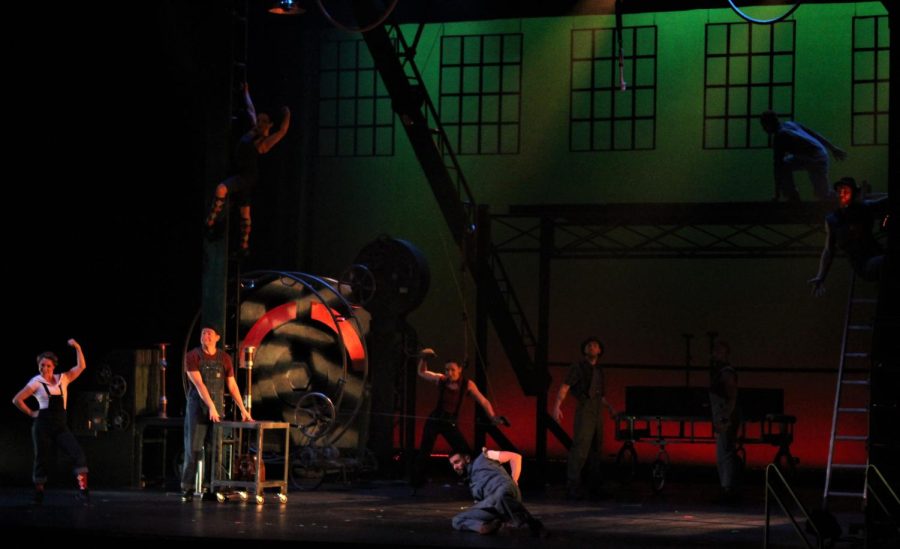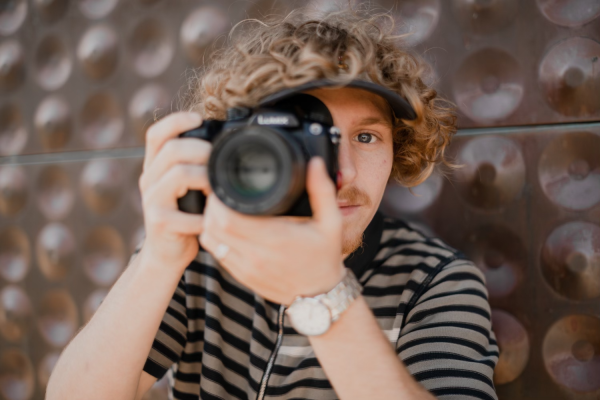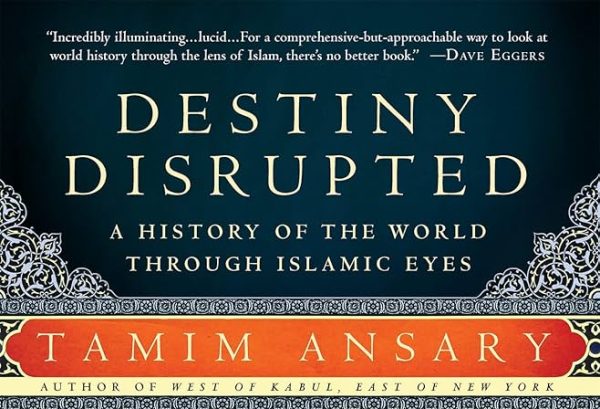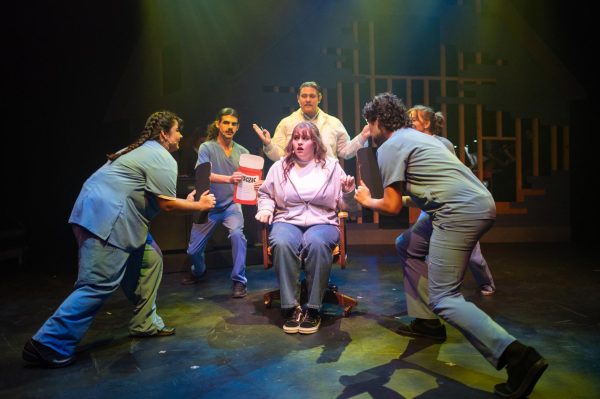Dead-end labor turns into caprice in circus story
The cast on stage
Circus performers told a nonverbal story of resilience and adaptability at Laxson Auditorium on Oct. 22. The plot of “Birdhouse Factory” by Cirque Mechanics centers around a mundane job that turns into beauty.
Talents included contortions, acrobatics, comedy, dance, juggling, balancing and more. The performance weaved marvelous and physically precise stunts and dance with versatile mechanics.
Funny for all ages, the comedic pantomime engaged the audience to interact with performers in response to recognizable cues like facial expressions, character archetypes and body language.
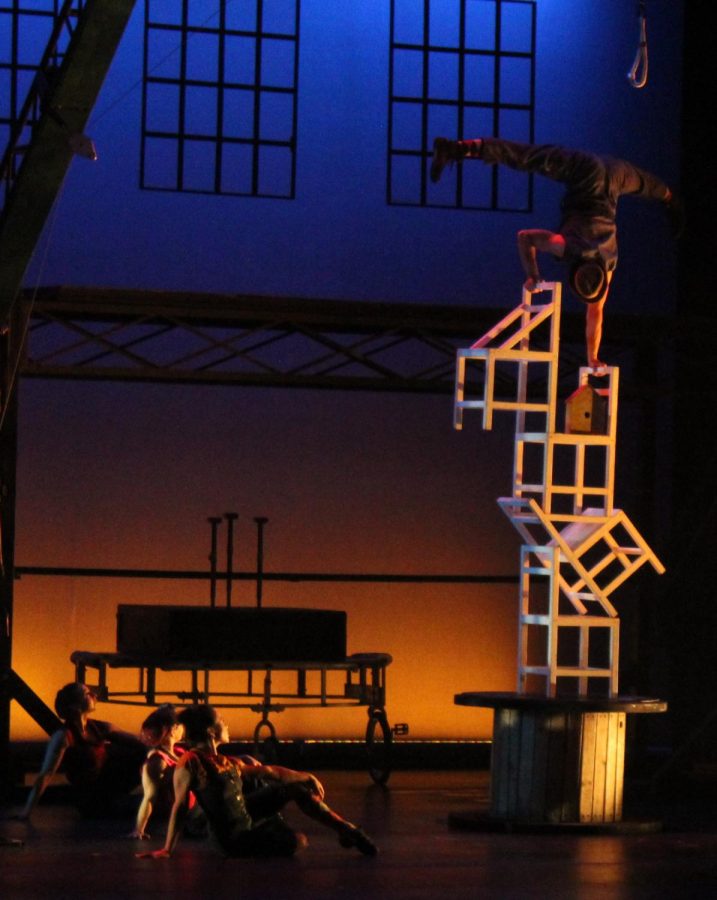
A factory boss balanced shelved-layers of wine glasses on the cigar in his mouth. A hilarious dancing man captured the hearts and laughter of the crowd as he flipped through jazz, showtunes and classical music on an antique radio. The opening piano riff to Britney Spears’s “Hit Me Baby (One More Time)” snuck into the alternating pattern of static and oldies — a funny, fleeting surprise.
Inspired by Charlie Chaplin’s “Modern Times” (1936), the plot takes place in a 1920s factory. Cirque Mechanics’ founder and creative director Chris Lashua said they aimed for a whimsical performance against a grim, dreary background, like Chaplin did. The set’s industrial theme allows for a beautiful display of mechanics.
Lashua said the show is a “story of workers who lose interest in working for the man,” complete with a message about doing what you love.

A bird gets into the factory and becomes injured, sparking the jaded workers’ interest. They become more invested in looking after the bird’s wellbeing and less in their own work. The story ends with the workers quitting factory work to build birdhouses.
Before Cirque Mechanics, Lashua toured with Cirque du Soleil after one of the founders discovered him in China while he was a BMX stunt-performer. He created Birdhouse Factory in 2004 and the show toured until 2014. Two and a half years ago, he planned for its return before it was delayed by COVID-19 until recently, making Chico the show’s third stop on the tour.
“It’s really great to be back in front of audiences,” Lashua said.
Lashua called the connectedness between mechanics and performers a metaphor for the resonance they want to feel with the audience. He said the heart of the company’s work lies in allowing people to see the connection between the mechanical and literal world, “rather than hiding behind cables and smoke and mirrors.”
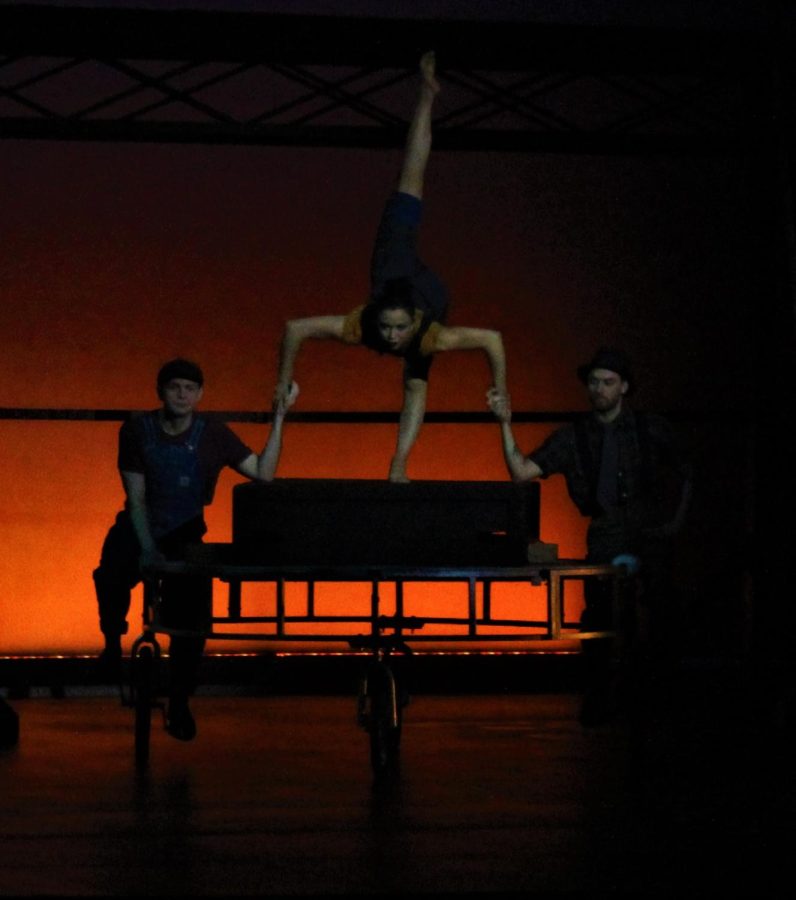
Lashua created his signature German wheel contraption, the centerpiece for Birdhouse Factory, while he was in Cirque du Soleil. The German wheel is a performance hoop that spins on the ground while gymnasts suspend themselves in the center, holding onto bars.
Known as “the trolley,” Lashua’s contraption consists of the German wheel laid on a set of rollers, allowing performers to spin in place. During the show, the platform acted as a rotating stage driven by unicyclists for a better showcase of talent like contortions.
“We try to find a way to solve these challenges of the circus — how to get people flying through the air, how to catch them safely — and build devices that can do that in a way that’s interesting,” Lashua said.
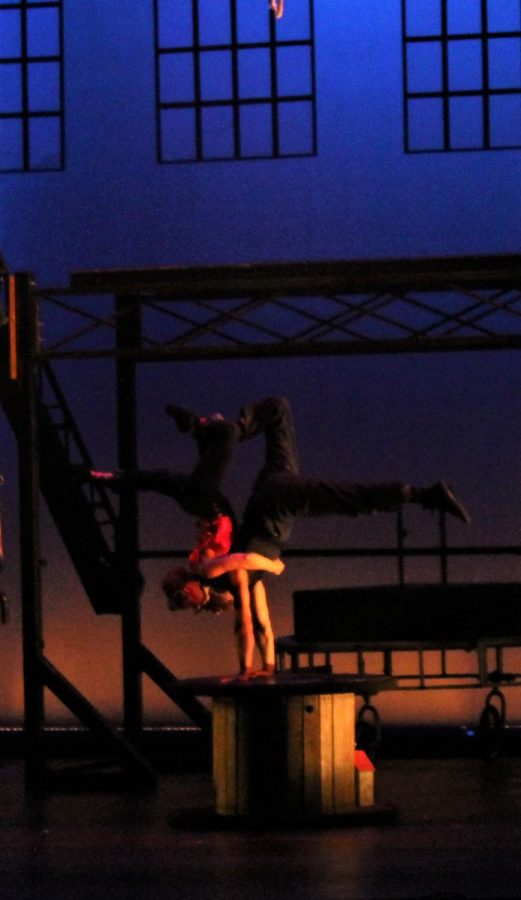
He attached a winch to the German wheel so that a performer can generate enough energy to raise an aerialist through connected cables, making this device a versatile piece of work. He has no background in engineering other than disassembling bicycles and rebuilding them in “funky ways.”
He sketches ideas and consults engineers for concepts like gear ratios and mathematical formulas. The company needs engineers for complex ideas like using torque-applied body weight to balance with mechanical demands. For financial and safety considerations, they validate every calculation before building. They also consider that every stage is different.
“We design a show so that it fits into a box, and we bring that box everywhere,” Lashua said.
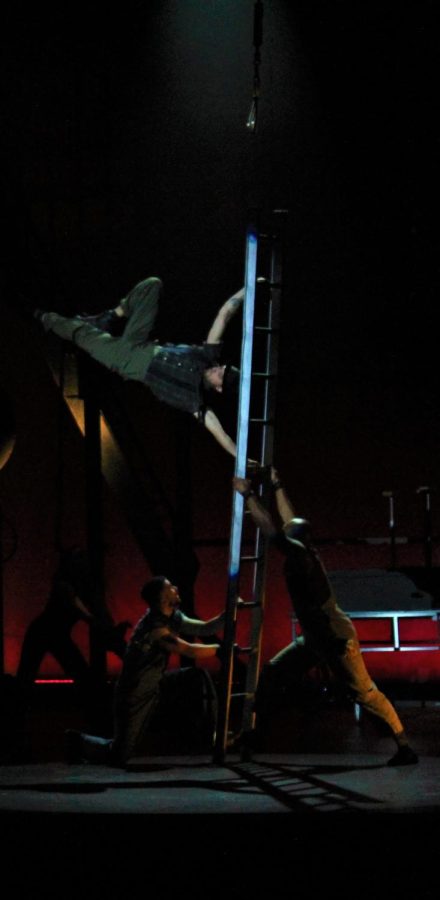
The show has an inspirational message about evaluating your position in life and whether or not you want to be there.
An article from Inside Higher Ed showed that nearly half of 2,000 surveyed college students changed their minds about their academic or career paths because of COVID-19 .
“I think that’s one of the funny things about COVID,” Lashua said. “I don’t care how old you are, what you’ve done or where you are in life. Most of us at some point during COVID were scratching our heads going, ‘Wow, is this what I want to be doing? Am I happy doing this?’ That’s what happens in this factory.”
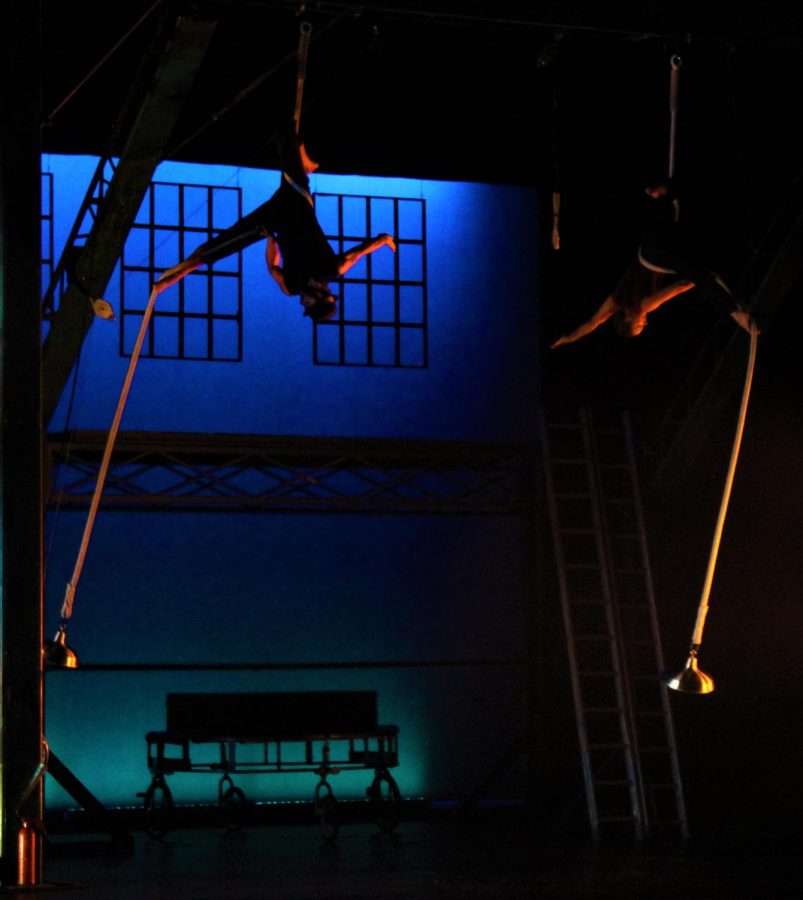
Shae Pastrana can be reached at [email protected] and @Pineyfolk on Twitter.



